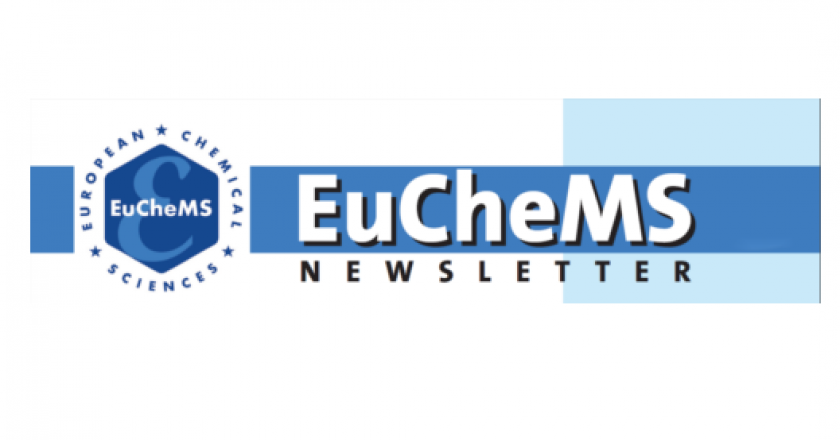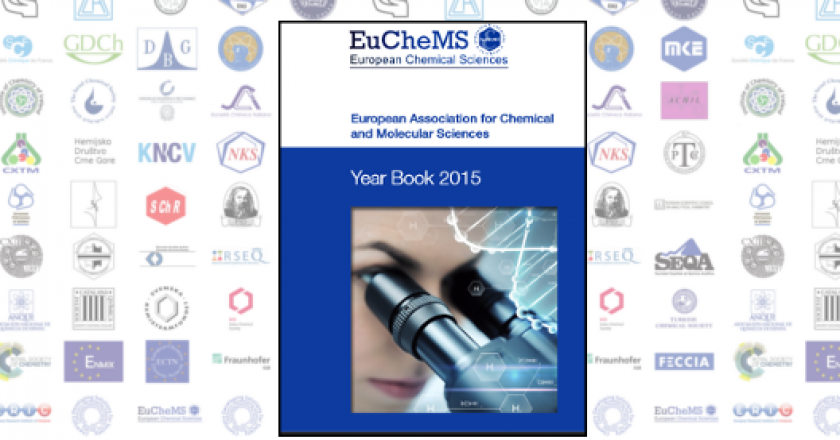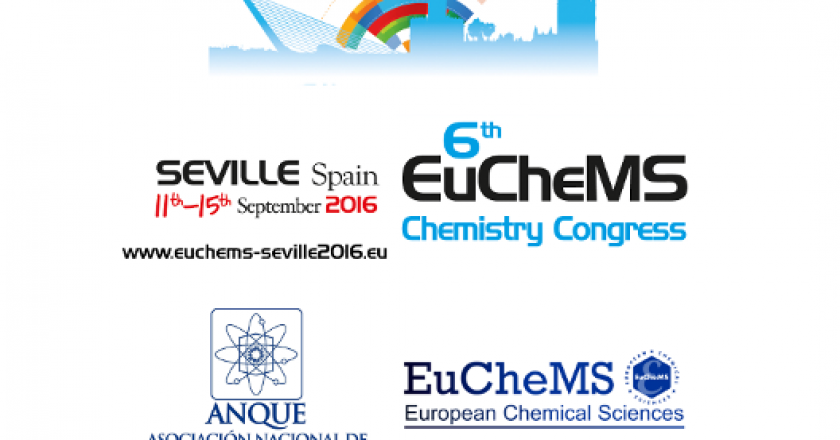From 23 to 27 May, the President of European Research Council (ERC), Prof. Jean-Pierre Bourguignon, visited India to raise awareness amongst Indian top scientists about funding opportunities in Europe. He also took part in the Global Research Council meeting to be held in New Delhi. Since 2007, the ERC has awarded nearly €11 billion to more over 6,000 scientists and scholars from all over the world, both early -career and senior. Of these, 33 are Indian researchers working in prestigious institutions across Europe. The ERC wishes to see this number increase.
Source: https://erc.europa.eu/
Measuring Air Quality, Weighting Policy Solutions
The Joint Research Centre (JRC) coordinated and contributed to two of the ten chapters of the 2016 Scientific Assessment Report of the United Nations Economic Commission for Europe (UNECE), which was officially launched in Brussels at the end of May. The main findings of the report show that air quality in Europe have improved significantly over the past 30 years thanks mainly to policy-driven reductions in air pollution. Nonetheless, air pollution is still the main environmental cause of premature deaths in Europe (due mainly to high concentrations of fine particles and ground-level ozone), and ecosystem biodiversity is threatened due to nitrogen deposition. The aim of this assessment is to serve as a basis for considering new directions for policy development and for identifying policy-relevant research questions.
Source: https://ec.europa.eu/jrc/
European Inventor Award 2016
The European Patent Office (EPO) showcased some the best and brightest in innovation at the European Inventor Award 2016 ceremony in Lisbon. Now in its 11th year, the award is presented annually by the EPO to recognise outstanding inventors from Europe and around the world, who have made an exceptional contribution to social development, technological progress and economic growth. Find out more about the winners of this edition in the link below.
Source: https://www.epo.org/
Armenia Joins Horizon 2020 to Work with EU in Research and Innovation
Researchers and innovators from Armenia will now have full access to Horizon 2020, the EU’s research and innovation funding programme, under the same conditions as their counterparts from EU Member States and other associated countries. Thanks to this agreement, its research institutes, universities and individual researchers will now have access to all opportunities offered by Horizon 2020 in diverse areas, from fundamental science to demonstration projects, on an equal footing with researchers and organisations from EU Member States and other countries associated to the programme.
Source: http://europa.eu/
Modernising EU’s Standardisation Policy
Earlier this month the Dutch Presidency officially launched the framework for the Joint Initiative on Standardisation (JIS). The JIS will bring together European and national standardisation organisations and bodies, industry, SMEs, consumer associations, trade unions, environmental organisations, Member States and the Commission. These partners will commit to modernising, prioritising, and speeding up the timely delivery of standards by the end of 2019. The JIS will better align standard setting priorities with research and innovation impetus, with support from the EU research and innovation programme Horizon 2020. The JIS will also promote the use of European standards at international level.
Source: http://europa.eu/
EU Tackling Climate Change
The European Commission presented a proposal for the European Union to ratify the Paris Agreement, a legally binding deal to tackle climate change.
This proposal follows the successful conclusion of the COP21 in Paris, as well as the Commission´s full assessment of the Paris Agreement presented in March 2016. The Paris Agreement is an opportunity for achieving broader sustainable development goals, as well the EU’s priorities of investment, competitiveness, circular economy, research, innovation and energy’s transition. Chemistry will be playing a major role in providing solutions to reach the Paris Agreement targets.
Source: http://europa.eu/
MEPs Condemn Commission Delays in Hormone-Disruptors Regulation
European Commission delays in publishing the scientific criteria needed to identify and reduce exposure to hormone-disrupting chemicals, which the UNEP/WHO sees as a global threat to public health, were condemned by Parliament in a resolution voted on 8 June. The text, on “endocrine disruptors”, points out that the Commission’s persistent failure to publish the criteria, which were due by the end of 2013, also breaches EU law. It is foreseen that the Commission will publish these criteria before summer.
Source : http://www.europarl.europa.eu/news/
Meet the New Elements
Nihonium (Nh), Moscovium (Mc), Tennessine (Ts), and Oganesson (Og) are the names proposed for the four new additions to the periodic table. The International Union of Pure and Applied Chemistry (IUPAC) Inorganic Chemistry Division has reviewed these proposals and recommends them for approval. A five-month public review is now set, expiring 8 November 2016, prior to the formal approval by the IUPAC Council.
Source: http://iupac.org/
Finding Solutions for Antibiotic Resistance: STOA Workshop Outcomes
The outcomes of the STOA working breakfast Solving Antibiotic Resistance are now available online at EuCheMS website as well as on STOA´s webpage.
During this event co-organised by the European Parliament´s STOA, EuCheMS, and EFMC and chaired by MEP Paul Rübig on the 28 April 2016, researchers and several Members of the European Parliament analysed the global challenge of antimicrobial resistance and weighted the pros and cons of possible solutions.
Source: http://www.euchems.eu
EuCheMS Nominated to Open Science Policy Platform
EuCheMS was selected for the European Commission High-Level Advisory Group “Open Science Policy Platform”. The group, in which EuCheMS will be represented by Prof. Wolfram Koch, was recently announced by European Commissioner Carlos Moedas at the Competitiveness Council in Brussels.
The mandate of this group, composed by 25 stakeholders, is, among other, to advise the Commission on how to further develop and practically implement open science policy, in line with the priority of Commissioner Moedas to radically improve the quality and impact of European science; and to support policy formulation by helping to identify the issues to be addressed and providing recommendations on the policy actions required.
Source: http://www.euchems.eu/

Latest issue of EuCheMS Newsletter
Read it here! Some of the highlights are:
- Shadowing a MEP
- Invitation to ECC6 in Sevilla
- EYCN at ECC6

EuCheMS 2015 Year Book is Now Online!
Discover all about our activities here

6th EuCheMS Chemistry Congress
Seville, Spain
11 – 15 September 2016
http://euchems-seville2016.eu/

Thank You Chemistry
EU Sustainable Energy Week Conference (EUSEW)
Brussels, Belgium
14 – 16 June 2016
Website: http://ec.europa.eu/
High Level Roundtable on Low-carbon Innovation
Brussels, Belgium
9 June 2016
Website: http://europa.eu/
24th European Biomass Conference and Exhibition
Amsterdam, The Netherlands
6 – 9 June 2016
Website: http://ec.europa.eu/
NanoDiode Working Conference
Brussels, Belgium
31 May 2016
Website: http://ec.europa.eu/
JRC Open Day 2016
Ispra, Italy
28 May 2016
Website: https://ec.europa.eu/
Open Innovation 2.0 Conference 2016
Brussels, Belgium
23 – 24 May 2016
Website: http://europa.eu/
First European Citizen Science Association Conference 2016
19 – 21 May
Berlin, Germany
Website: https://ec.europa.eu/
NRC9 – 9th International Conference on Nuclear and Radiochemistry
Helsinki, Finland
29 August – 2 September 2016
Website: http://nrc9.it.helsinki.fi/
IX International School on Organometallic Chemistry “Marcial Moreno Mañas”
San Sebastián, Spain
06 – 08 July 2016
Website: http://school2016.orfeo-cinqa.es/
ChemCH2016 – Chemistry for Cultural Heritage 2016
Brussels, Belgium
06 – 07 July 2016
Website: http://org.kikirpa.be/chemch2016/
ExTech’2016 / ISSS’2016
Toruń, Poland
03 – 06 July 2016
Website: http://www.extech-isss2016.pl/
